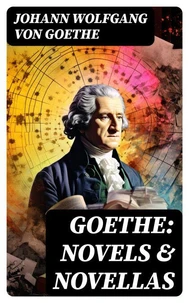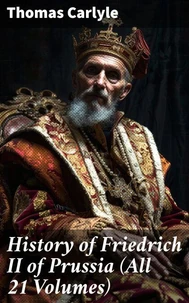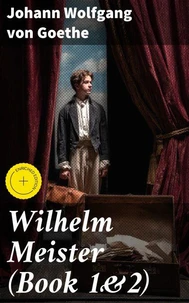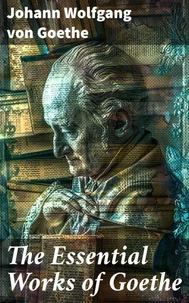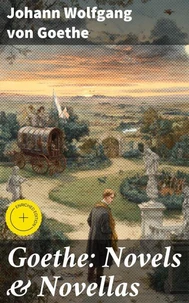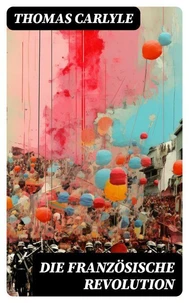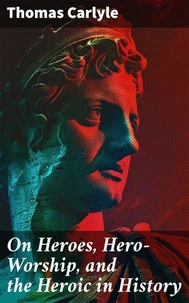History of Friedrich II of Prussia (All 21 Volumes). Biography of the Famous Prussian King, Called Frederick the Great
Par :Formats :
Disponible dans votre compte client Decitre ou Furet du Nord dès validation de votre commande. Le format ePub est :
- Compatible avec une lecture sur My Vivlio (smartphone, tablette, ordinateur)
- Compatible avec une lecture sur liseuses Vivlio
- Pour les liseuses autres que Vivlio, vous devez utiliser le logiciel Adobe Digital Edition. Non compatible avec la lecture sur les liseuses Kindle, Remarkable et Sony
 , qui est-ce ?
, qui est-ce ?Notre partenaire de plateforme de lecture numérique où vous retrouverez l'ensemble de vos ebooks gratuitement
Pour en savoir plus sur nos ebooks, consultez notre aide en ligne ici
- Nombre de pages3599
- FormatePub
- ISBN859-65--4772712-5
- EAN8596547727125
- Date de parution19/11/2023
- Protection num.Digital Watermarking
- Taille4 Mo
- Infos supplémentairesepub
- ÉditeurDIGICAT
Résumé
In "History of Friedrich II of Prussia, " Thomas Carlyle presents a monumental work that intricately chronicles the life and reign of Frederick II, portraying him not only as a sovereign but also as a complex individual entwined in the cultural and political fabric of 18th-century Europe. Written in a distinctive, elevating prose style that blends historical narrative with philosophical reflections, Carlyle's extensive 21-volume series delves into themes of power, art, and the interplay of destiny and free will.
This ambitious project reflects Carlyle's deep engagement with German Romanticism and responds to the Enlightenment ideals that shaped his historical perspective, making it a rich tapestry of political and personal histories showcasing the fervor and challenges of the Prussian state during a tumultuous era. Thomas Carlyle, a Scottish philosopher and historian, was profoundly influenced by the socio-political upheavals of his time, particularly the industrial revolution and the complexities of modernity.
His reverence for strong leadership and deep admiration for Frederick II are evident throughout the series. Carlyle's own struggles with faith, identity, and the power of the written word inform his portrayal of Frederick, positioning the King as a symbol of idealistic yet pragmatic governance amidst chaos. This exhaustive biography not only offers readers a fascinating historical account but also prompts them to ponder the greater philosophical questions surrounding authority, legacy, and the human condition.
Scholars, history enthusiasts, and general readers alike will find Carlyle's narrative both enlightening and compelling, making this work an essential read for anyone drawn to the confluence of history and literature.
This ambitious project reflects Carlyle's deep engagement with German Romanticism and responds to the Enlightenment ideals that shaped his historical perspective, making it a rich tapestry of political and personal histories showcasing the fervor and challenges of the Prussian state during a tumultuous era. Thomas Carlyle, a Scottish philosopher and historian, was profoundly influenced by the socio-political upheavals of his time, particularly the industrial revolution and the complexities of modernity.
His reverence for strong leadership and deep admiration for Frederick II are evident throughout the series. Carlyle's own struggles with faith, identity, and the power of the written word inform his portrayal of Frederick, positioning the King as a symbol of idealistic yet pragmatic governance amidst chaos. This exhaustive biography not only offers readers a fascinating historical account but also prompts them to ponder the greater philosophical questions surrounding authority, legacy, and the human condition.
Scholars, history enthusiasts, and general readers alike will find Carlyle's narrative both enlightening and compelling, making this work an essential read for anyone drawn to the confluence of history and literature.
In "History of Friedrich II of Prussia, " Thomas Carlyle presents a monumental work that intricately chronicles the life and reign of Frederick II, portraying him not only as a sovereign but also as a complex individual entwined in the cultural and political fabric of 18th-century Europe. Written in a distinctive, elevating prose style that blends historical narrative with philosophical reflections, Carlyle's extensive 21-volume series delves into themes of power, art, and the interplay of destiny and free will.
This ambitious project reflects Carlyle's deep engagement with German Romanticism and responds to the Enlightenment ideals that shaped his historical perspective, making it a rich tapestry of political and personal histories showcasing the fervor and challenges of the Prussian state during a tumultuous era. Thomas Carlyle, a Scottish philosopher and historian, was profoundly influenced by the socio-political upheavals of his time, particularly the industrial revolution and the complexities of modernity.
His reverence for strong leadership and deep admiration for Frederick II are evident throughout the series. Carlyle's own struggles with faith, identity, and the power of the written word inform his portrayal of Frederick, positioning the King as a symbol of idealistic yet pragmatic governance amidst chaos. This exhaustive biography not only offers readers a fascinating historical account but also prompts them to ponder the greater philosophical questions surrounding authority, legacy, and the human condition.
Scholars, history enthusiasts, and general readers alike will find Carlyle's narrative both enlightening and compelling, making this work an essential read for anyone drawn to the confluence of history and literature.
This ambitious project reflects Carlyle's deep engagement with German Romanticism and responds to the Enlightenment ideals that shaped his historical perspective, making it a rich tapestry of political and personal histories showcasing the fervor and challenges of the Prussian state during a tumultuous era. Thomas Carlyle, a Scottish philosopher and historian, was profoundly influenced by the socio-political upheavals of his time, particularly the industrial revolution and the complexities of modernity.
His reverence for strong leadership and deep admiration for Frederick II are evident throughout the series. Carlyle's own struggles with faith, identity, and the power of the written word inform his portrayal of Frederick, positioning the King as a symbol of idealistic yet pragmatic governance amidst chaos. This exhaustive biography not only offers readers a fascinating historical account but also prompts them to ponder the greater philosophical questions surrounding authority, legacy, and the human condition.
Scholars, history enthusiasts, and general readers alike will find Carlyle's narrative both enlightening and compelling, making this work an essential read for anyone drawn to the confluence of history and literature.



